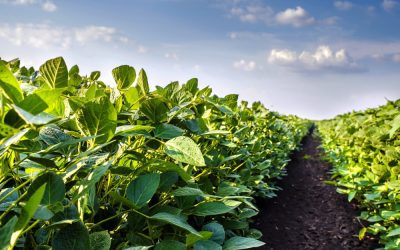Indiana soybean checkoff seeks deal to ship Hoosier soybeans to Indonesia
By Dave Blower Jr.
U.S. export negotiators often say that the key to any deal is building strong relationships. In February, Indiana’s soybean checkoff program, the Indiana Soybean Alliance (ISA), embarked on a mission to Indonesia to accomplish that step in a much larger goal.
In mid-February, ISA led a 10-person delegation to the capital city of Jakarta and other points in Indonesia to meet with potential soybean buyers and tour various facilities. At present, the United States exports 2.5 million metric tons of soybeans to Indonesia. The goal is to increase Indiana’s share of that export to Indonesia, according to Ed Ebert, ISA’s senior director of market development.
“The importance of it can’t be understated in terms of its overall contribution to the amount of soybeans that are exported out of the United States,” he added. “It is, by far, the largest consumer of U.S. soy in the form of No. 1 yellow soybeans, which they use to make food products here in Indonesia, principally tofu and tempeh.”
The effort to expand sales of Indiana soybeans is being assisted by the USDA’s Regional Agricultural Promotion Program (RAPP), which provided $1.3 billion to U.S. farmers to diversify their export markets.
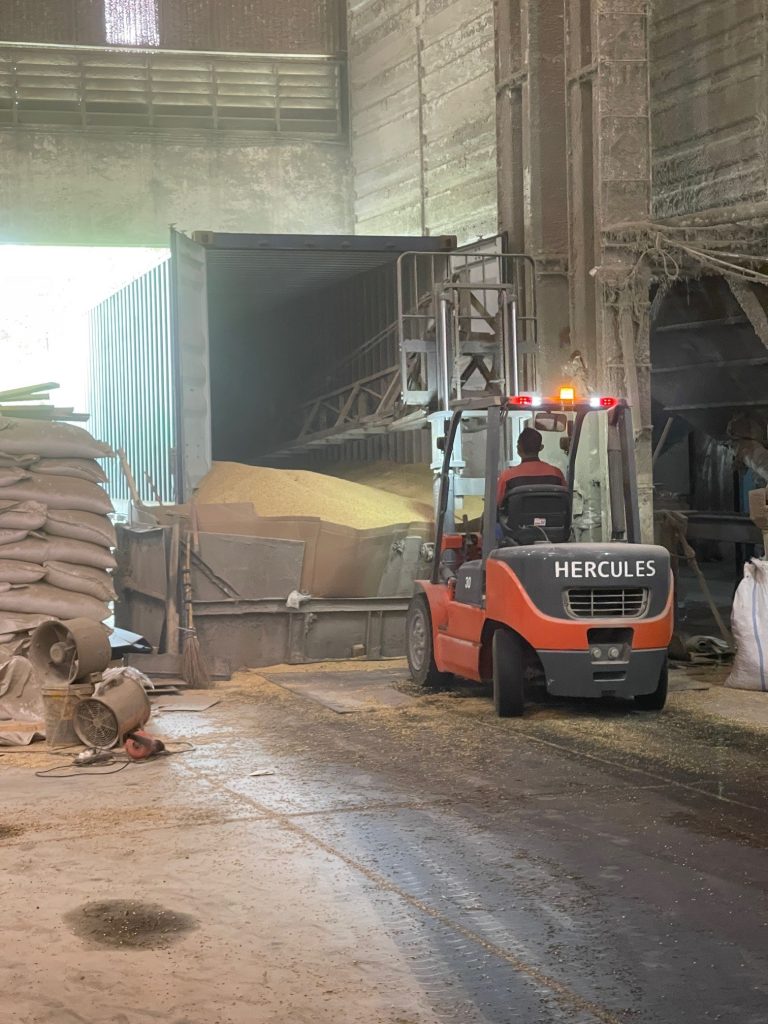
In addition to Ebert, the delegation included:
- Jim Douglas, a farmer from Flat Rock, Ind., and a United Soybean Board (USB) director
- Mayasari Effendi, an Indonesian native, ISA consultant and Greensburg restaurant owner
- Nick Stewart, owner and partner of S&G Seeds
- Andrew Sherman, International Trade Director for Indiana State Department of Agriculture
- Grant Fausset, Pence Group, District Sales Manager
- Josh Marsh, Mayor of the City of Greensburg
- Bryan Robbins, Director, Economic Development of Greensburg and Decatur County
- Adam Gerdes, Assistant General Manager, Consolidated Grain and Barge, Mt. Vernon, Ind.
- Jennifer Rachau, Chief of Staff, Ports of Indiana,
“We’ve brought in experts and participants from the farm gate all the way to the ports of Indonesia,” Ebert explained. “When we look at Indiana’s focus on sustainable cropping with double crop and other things that we lead the nation in, it’s certainly a great story to be able to tell our partners here in Indonesia about how we grow soybeans.
“A lot of this trip would not have been possible without Mayasari Effendi. She knows many people in Indonesia and provided us with great contacts to talk to.”
Reliable, quality supply
Douglas, a former ISA chair and now a USB director, said the soybean industry is vital to Indonesia, but production in the country itself is difficult. He said most of the crop is raised by hand in gardens.
“They don’t raise hardly any beans here,” Douglas said. “So, to get an adequate supply, they rely on imports. And they are very serious about coming in with quality. You’re fighting a climate that’s not friendly for storage of anything with humidity and so forth. So, there’s a lot of challenges.”
The Indiana delegation met with FKS Multi Agro, an Indonesian food and feed company, and Segitiga Agro Mandiri, a grain and field bean wholesaler. “A lot of these same companies, we’re visiting year after year to try to reinforce and develop the relationship, so they’re already customers,” Douglas said.
“This trip is going to enhance that by delivering a high-end product to them. That’s mainly the focus of this — to try and move that needle and supply that directly out of Indiana.”
Stewart, who is with S&G Seeds, said there is an opportunity to provide more than the standard soybeans, which are largely used for food products made in Indonesia.
“That could be a higher protein content, a high oleic content or varieties we have been told just either enhances or improves the flavor profile or the health profile of the food,” Stewart said. “And in talking with the distribution side of things, I think we can benefit from also doing the cleaning ourselves and sending them a higher quality product, in general, instead of just what you send on a barge.”
Sherman, who is ISDA’s international trade director, said the focus of this trip was soybeans. However, he said there is potential for other Indiana-made products to be exported to Indonesia, including dairy and other packaged consumer-ready goods.
“But we feel that just the ability to supply such a culturally relevant food in tempeh and tofu makes this trip worth it even if we focus just in this one area,” he said.
Tempeh and tofu
Indonesia has the fourth-largest population in the world. Soybean-based foods such as tempeh and tofu are traditional and revered in the country.
“People over here eat meals with soybeans in them three times a day,” Douglas said. “It’s their main staple. The majority of their demand for soybeans is driven by tempeh and tofu, both of which are foods woven deeply into the Indonesian culture. One of the challenges is getting beans distributed to the 17,000 islands that are part of Indonesia. It’s amazing how it works. Most of the population is centered on a few islands, but you have to feed all those people.”
Tempeh is a vegetarian substitute made from whole soybeans. Unlike tofu, tempeh is fermented. The fermentation process may help your body to digest it and pull more nutrients from it. It also gives tempeh a firmer, more meat-like texture. Tempeh is typically marinated or seasoned to increase flavor, this it is crumbled, baded, steamed or sauteed and added to other dishes. Tofu is a high-protein, plant-based food made from soybeans – often used as a meat substitute in vegetarian or vegan foods. Tofu has minimal flavor, but it picks up flavors that is cooked with it.
Mayasari Effendi, an Indonesian native and an ISA consultant, owns and operates a restaurant in Greensburg that features Indonesian fare including tempeh and tofu. Effendi helped the delegation make key connections in the country.
Greensburg Mayor Josh Marsh and Bryan Robbins of the Greensburg/Decatur County Economic Development Corp. praise Effendi for her innovative business.
“(Effendi is) able to create a food product that actually has even higher nutrition value than traditional tempeh,” Robbins said. “Tempeh has been seen as kind of a superfood recently, and it is increasing in popularity. Being able to actually come over here, see their processes here, getting in contact with some of those that tried to promote not only Indonesian culture, but Indonesian culture through their food, being able to see the connections that (Effendi) has and help build on those connections will hopefully help her grow and help her scale up her business in Greensburg.”
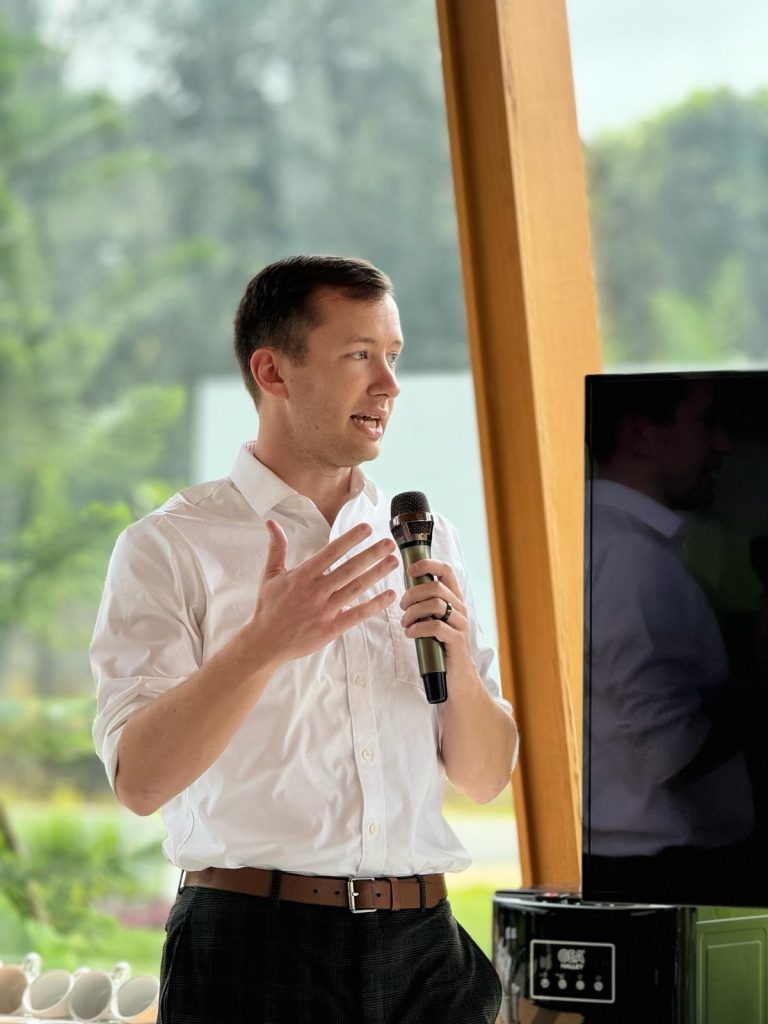
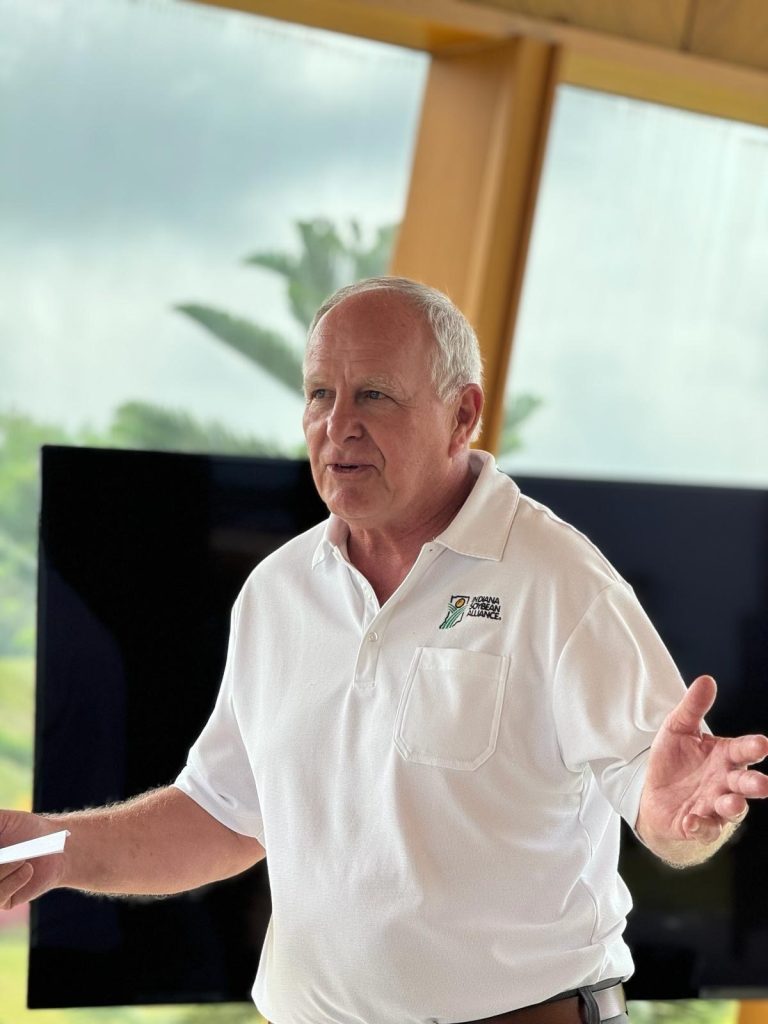
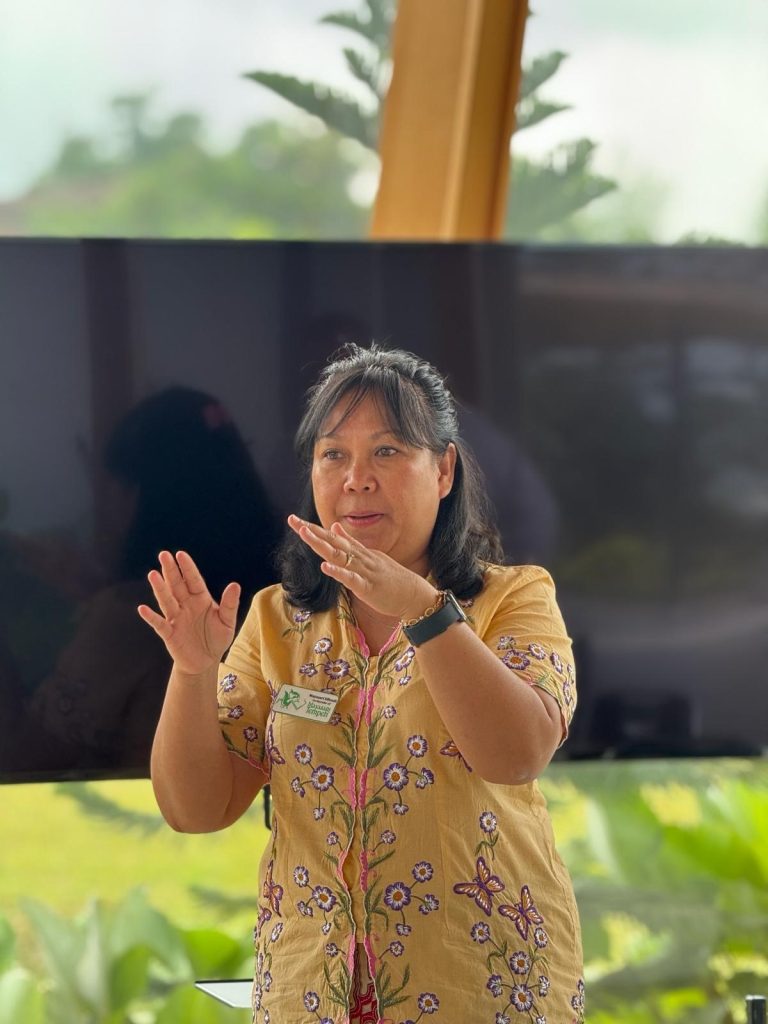
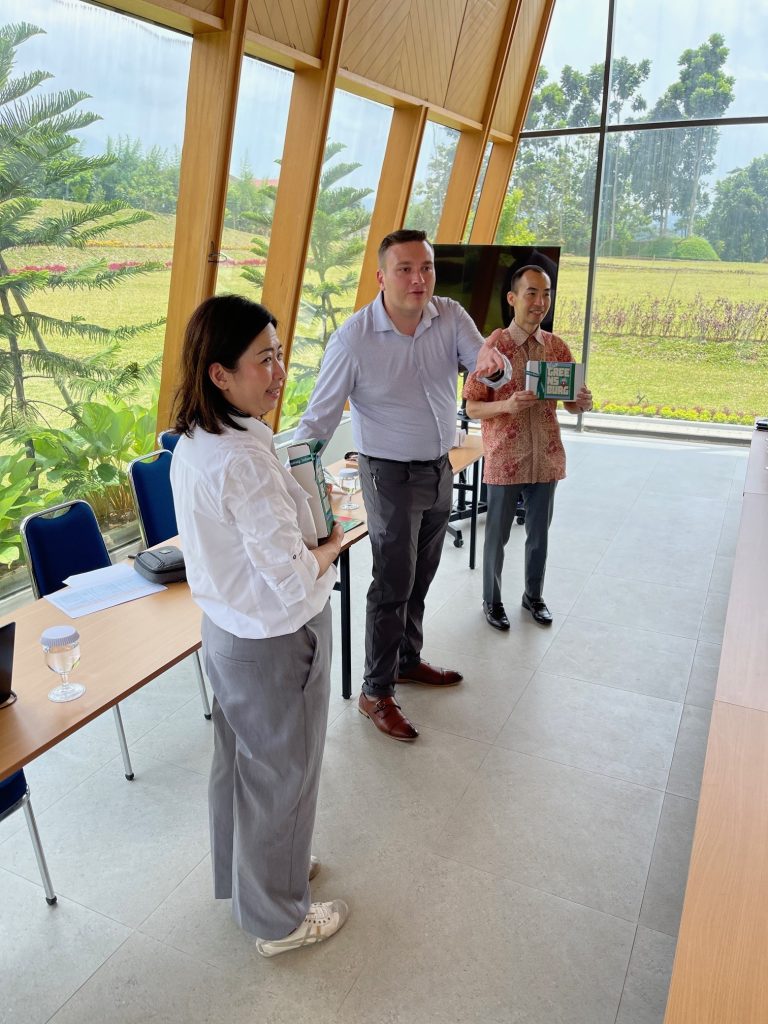
Posted: March 23, 2024
Category: Indiana Corn and Soybean Post - March 2024, ISA, Market Development, News


